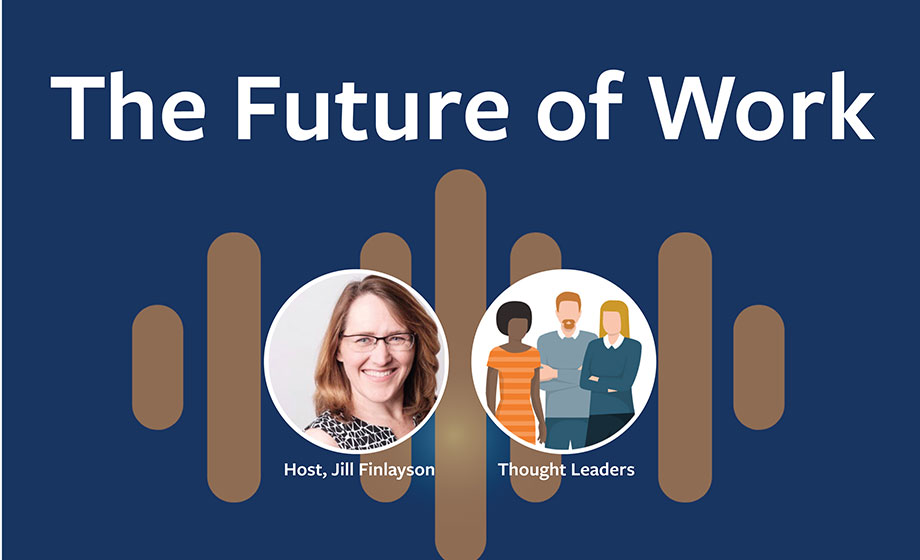Podcasts

The way we work and the skills we need to succeed continues to shift. Each month, we speak with industry leaders to discuss the changing evolution of the workforce and how you can stay competitive.
Employee resource groups—better known as ERGs—provide a safe space for employees to meet with others like themselves and develop community around those shared traits and needs. Normally employee-led, ERGs also provide inherent value to organizations small and large—from increasing employee retention, providing opportunity for professional development or boosting recruitment efforts. They are a win-win for both the employee and the employer.
We ended 2022 with a bit of an upheaval in the job market. Mass layoffs at big-tech companies were splashed across the headlines. And more organizations are speculating that layoffs may be part of their fiscal plan in the coming months, reacting to the possibility of a looming recession. So in this episode of the Future of Work, we’re bringing the workplace a little closer to home—making sure that you have a financial contingency plan if you don’t already have one in place.
Who is steering the ship? Today’s workforce is more empowered than ever with many finding that maintaining a work-life balance is an important part of how we work. The pandemic opened the door to enabling greater flexibility around when and where we work. Job-seekers are prioritizing company mission, values and participation in DEI when they evaluate a potential role. Employees have shown that work can be done and done well remotely. So why the call back to the office? Why are products like an automatic mouse mover hitting the market? Where and why did the trust go?
This month, we chat with former guests Barry O'Reilly and Vaneese Johnson to future-cast what's in store for 2023! They look back on 2022: Did we learn anything new? Did any of our systems or practices change? They look forward to 2023: Will there be new ripples or upsets in the work place? What should leaders and employees do to prepare and succeed in 2023?
What was once considered side hustles, the gig economy has become so much more. In fact, it’s quickly becoming a trillion-dollar industry that offers more choices and opportunities. Whether it’s partaking in the rideshare business as a driver or working as a consultant in the project economy, are we seeing the demise of the full-time employee? What does this mean for organizations who need employers—or contractors—with hyper-specialized skills in order to remain relevant? What are the pros and pitfalls of this new gig landscape and who is able to thrive?
Across the globe, people have created effective remote working environments for themselves. Statistics vary, but the majority of employees say that working remotely will be important to them in the future. Not all workers have the option, but more than half do, and when offered, almost everyone takes the opportunity to work flexibly. So with more staff solely interacting through digital means, does the loss of face-to-face interactions mean less networking, creative collaborations and impromptu hallway meetings?





